The last blog entry Adrianos wrote before leaving for Concordia:
Time: L-90 (August 2013)
Morale: So-so
My selection for the Medical Research post at Concordia did not go unnoticed by friends and acquaintances. As I was struggling with the decision I had to make, more and more people found out about my upcoming adventure and sent congratulations or best wishes. This feeling was sometimes pleasant and sometimes a bit intrusive. I knew a long conversation about Concordia would often follow when I was introduced by friends: “This is Adriano, he’s off to Antarctica”!
People are often amazed or astonished when they hear that you are about to set aside the world’s little community and live with a band of brothers in a perceived ascetic life. Seldom do they realise the full effects of such an endeavour – positive and negative. Most do not comprehend what 12 months in Antarctic desolation mean, in a place where white is the only colour, where no birds, animals or people pass during winter and where food is fresh only in the summer. On the other hand, people do not anticipate many pleasant facts such as that you can admire the majesty of the Southern Lights as well as the myriad of jewels that light up the clearest sky on the planet.
Obviously, my knowledge about these is limited too. It is only after a year’s stay at Concordia that I will appreciate what the experience is like. One must prepare however!
Aside from what the world thinks, you have to battle your own inner demons to be able to prepare your mind to go (let alone to face your loved ones and utter the words). Doubt can be omnipresent, for every great moment you imagine in the shelter amidst the ice, there is a juxtaposition in your thoughts, born from inner weaknesses. In my case, past failures occupied my mind, giving rise to doubts. This did not transpire in distress, it was more like a constant tribunal in my head –the defense presented many arguments before my inner judge would give verdict: “Aye, let’s go to Concordia!” or “Forget about it” depending on my mood.
One of the recurring themes of my internal struggle was adaptability. I remember the first time I attended a summer camp, it lasted just five days but I quit on the third day. A year later I joined a different camp for 10 days – and survived. Although I am very confident that my ability to adapt has improved over the years, a concern is still a concern and time will tell. And time was the key aspect here.
Gradually I was dragged into the hype that surrounded me every time I mentioned Concordia and my unresolved dilemma. In general I enjoyed sharing my thoughts with family, friends and loved ones, however at times it was tiresome to engage in long series of explanations when someone would ask me “So – where are you going to work next year?” Still, this repetitive procedure allowed the idea to mature in my head and that was a blessing.
After a few weeks I realised how mindful I had to be. I had to make sure I was going to the Antarctic for a year for my own reasons, not because society thinks it is ‘cool’.
It was fortunate that I had spent the previous year at the International Space University, a higher education institute that is devoted to the studies of space, as the name suggests. The International Space University brings together people from different cultures and backgrounds, combining efforts in a unique amalgam. Visiting the University during the summer in order to attend an alumni conference brought rays of hope to my heart: I came closer to making my final decision. Meeting old friends who were excited about space sciences – exactly the kind that I would have to implement at Concordia – coupled with their harmonious, multicultural polyphony, helped me take my decision. Diego and Roman, of Mars500, who had been through similar experiences in confinement, helped me realise what I should expect from a year’s stay at world’s end, plus how to cope with it (and as my girlfriend reminds me, Anja played no small role as well!).
While I started partially preparing for the case that I might go, it was not until I visited the Sacred Rock of Acropolis in Athens that I fully made up my mind about going.
Watching the Greek flag dance in the arms of the wind at the birthplace of democracy, my thoughts dwelled upon another flag that was waving fiercely in the Antarctic: The first Greek to ever visit Concordia, Dr. Evangelos Kaimakamis had hoisted our blue and white flag in the middle of Dome Circe in 2012. This moment was immortalised by social media and I had seen the picture on internet. It was a fleeting memory that rekindled thoughts of a summer morning, under the shade of the Parthenon, and deep inside I yearned to live the same experience at Concordia.
“Walking on the relics of history, like sculptors we craft the curves of our future.”
That was the moment of transition in me. I changed from someone who was selected to go to someone who wanted to go to Concordia. Without fear or second thoughts, I breathed in the air of this forthcoming unique adventure.
Back at the International Space University, friends were excited. I remember Dani joking with me: “Promise me you will go to Concordia, Adrian”. Her commanding look as she spoke these words, probably from her Serbian origin, left me little choice! A few days later, Szymon told me over a glass of beer on our graduation night: “You have to go, Adrianos! You have to go, for all of us!”.
[youtube p6S9oqJRclo]
“It was an April morning when they told us we should go,
As I looked at you, you smiled at me – how could we say no?
With all the fun to have, to live the dreams we always had
With all the songs to sing, when we at last return again”
I could not reject the calling. I had to answer it. And even more, I wanted to do so.
Adrianos Golemis ҉

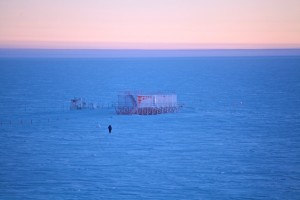
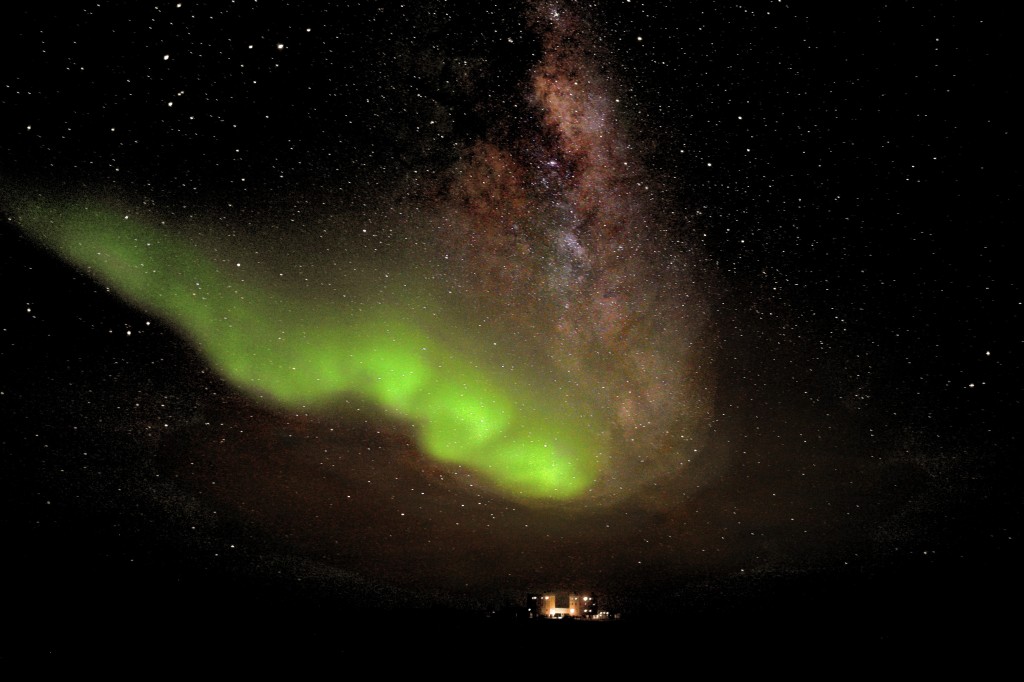
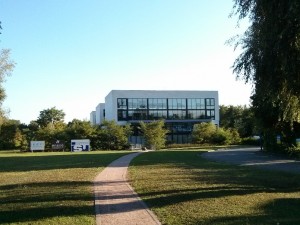
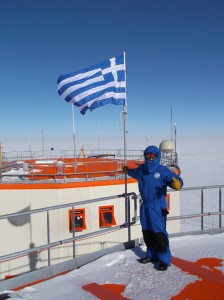


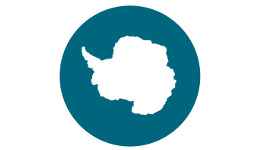
Discussion: one comment
Such a call is blessing. There is no doubt.